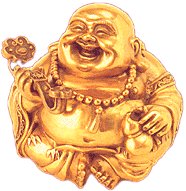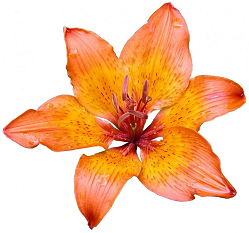|
|



|
|
HOME
Meditation What is Meditation? Power of Now Concentration & Insight Law of Attraction J Krishnamurti Tao Te Ching Dhammapada Buddhist Classics
|
Random Image
Meditation
What Is Meditation?
Conversation between Jiddu Krishnamurti
& Professor Allan W. Anderson
...continued from part six
Krishnamurti: So I see this, because I do not separate meditation from daily living. Otherwise it has no meaning. So I see the importance of order during the waking hours. And therefore freeing the mind - the brain - from conflict, all that, during sleep, so there is total rest to the brain. That's one thing. Then, what is control? Why should I control? They have all said control. All religions have said control. Control. Be without desire. Don't think about yourself. You follow? All that. I say to myself - this is what they say - can I live without control? You follow, sir?
Anderson: Oh yes, yes. One has to start that question too at the very beginning.
Krishnamurti: I am doing it. That's what we are doing.
Anderson: Yes. My statement is a reflection. Just a mirror to that, yes.
Krishnamurti: Yes.
Anderson: Yes.
Krishnamurti: Is it possible to live without control? Because what is the control? And who is the controller? The controller is the controlled. When I say, "I must control my thought", the controller is the creation of thought. And thought controls thought. It has no meaning. One fragment controls another fragment, and yet therefore remain fragments. So I say, is there a way of living without control? Therefore no conflict. Therefore no opposites. Not one desire against another desire. One thought opposed to another thought. One achievement opposed to another achievement. So, no control. Is that possible? Because I must find out. You follow, sir? It's not just ask a question, just leaving it alone. I've got energy now because I am not carrying their burden anymore. Nor am I carrying my own burden. Because their burden is my burden. When I have discarded that I have discarded this. So I have got energy when I say is it possible to live without control. And so it is a tremendous thing. I must find out. Because the people who have control, they have said through control you arrive at Nirvana, heaven - to me that's wrong, totally absurd. So I say, can I live a life of meditation in which there is no control?
Anderson: When intelligence breaks out, as we looked at before, then with it comes order and that order.. is intelligence.
Krishnamurti: Intelligence is order.
Anderson: Intelligence is that order. The seeing is the doing.
Krishnamurti: The doing, yes.
Anderson: Therefore there is no conflict at all.
Krishnamurti: You see, therefore do I live a life, not only is it possible, do I live it? I've got desires: I see a car, a woman, a house, a lovely garden, beautiful clothes, or whatever it is, instantly all the desires arise. And not to have a conflict. And yet not yield. If I have money I go and buy it. Which is obvious. That's no answer. If I have no money I say, "Well, I'm sorry. I have no money. And I will get it sometime, someday. Then I'll come back and buy it." It's the same problem. But the desire is aroused. The seeing, contact, sensation and desire. Now that desire is there, and to cut it off is to suppress it. To control it is to suppress it. To yield to it is another form of fragmenting life into getting and losing. I don't know if I...?
Anderson: Yes, yes, yes.
Krishnamurti: So to allow for the flowering of desire without control. You understand, sir?
Anderson: Yes, I do.
Krishnamurti: So the very flowering is the very ending of that desire. But if you chop it off it will come back again.
Anderson: Yes, yes. It's the difference between a terminus and a consummation.
Krishnamurti: Quite, yes. So I let the desire come, flower, watch it. Watch it, not yield or resist. Just let it flower. And be fully aware of what is happening. Then there is no control.
Anderson: And no disorder.
Krishnamurti: Of course. The moment you control there is disorder. Because you are suppressing or accepting - you know, all the rest of it. So that is disorder. But when you allow the thing to flower and watch it, watch it in the sense be totally aware of it - the petals, the subtle forms of desire to possess, not to possess, to possess is a pleasure, not to possess is a pleasure, you follow? - the whole of that movement of desire.
Anderson: Exactly.
Krishnamurti: And to be very sensitive, watchful, very sensitive, choiceless watching.
Anderson: This image that you have referred to metaphorically with the plant itself, could we pursue that in our next conversation through the continuation of concern to look further into meditation.
Krishnamurti: We have not finished meditation.
Anderson: We haven't, no.
Krishnamurti: There's lots more involved.
Anderson: Good, good.
Continue to next part...



Contact • Feedback • Typo • Privacy • Home